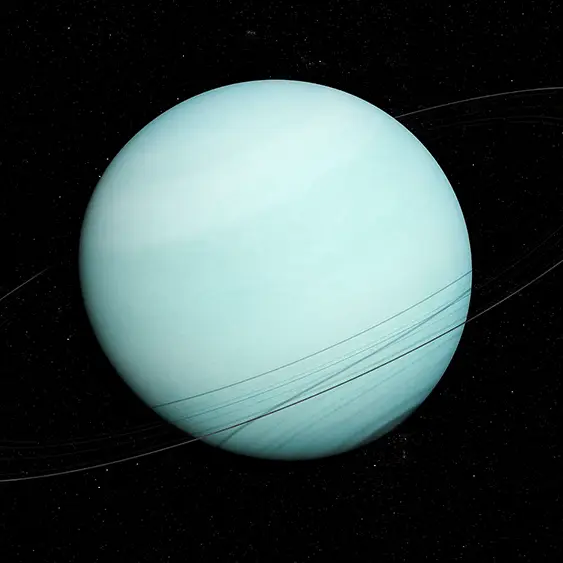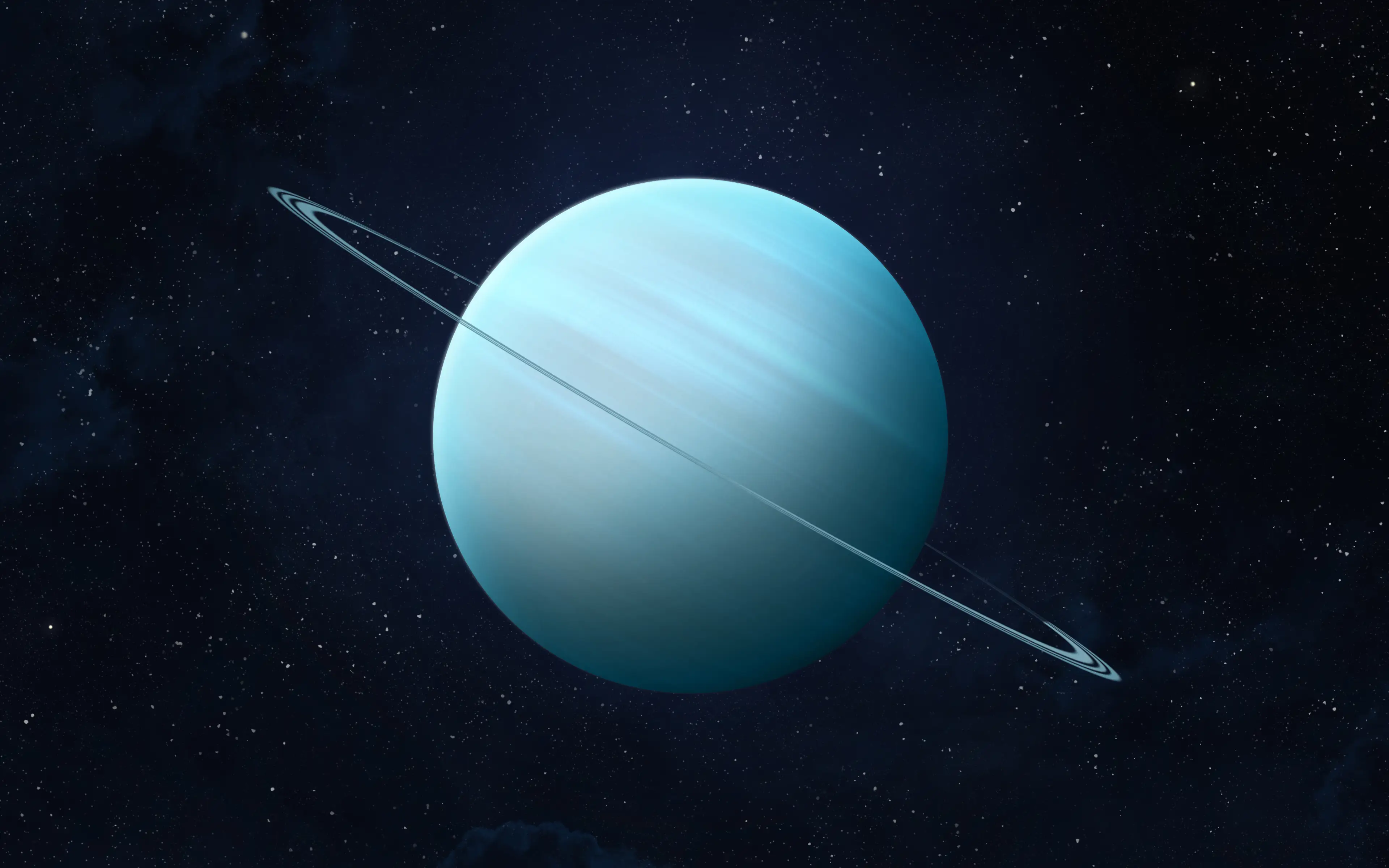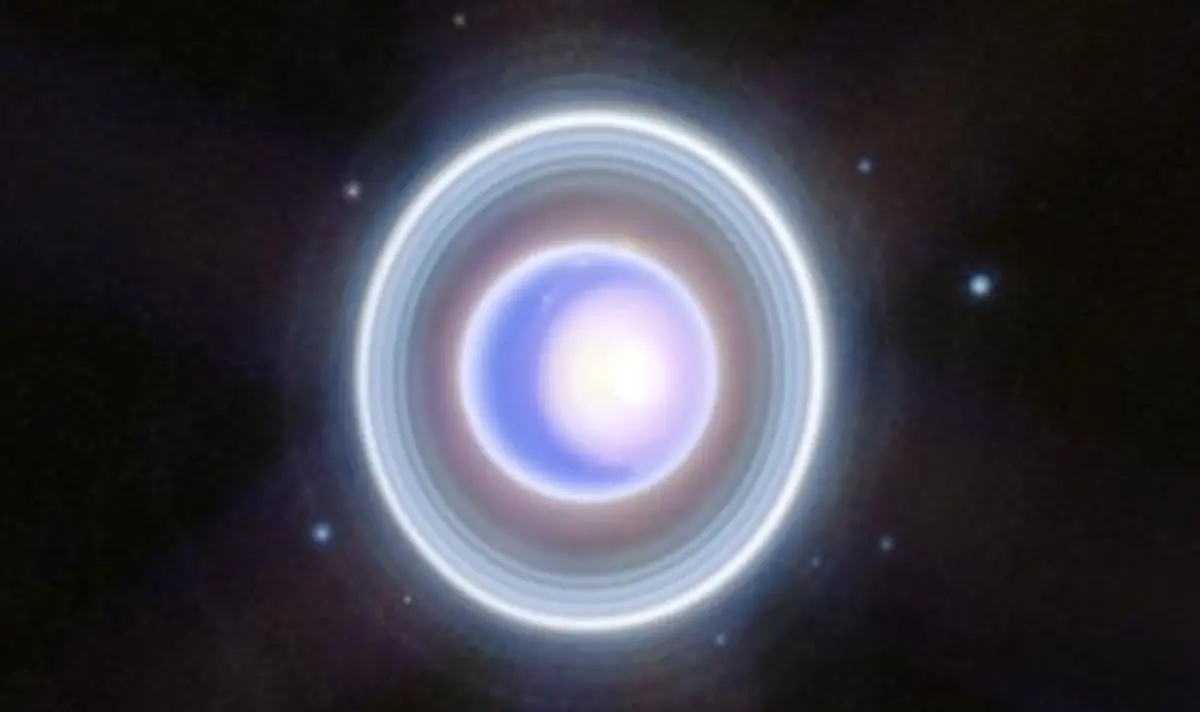
NASA is appealing to UK and European-based space scientists to begin collaborating on their ambitious mission to Uranus.
The government agency, founded in 1985, is teasing a ‘once-in-a-lifetime flagship mission’ to Uranus after a past expedition suggested alien life could be present on the planet.
Nasa’s Voyager-2 probe, which flew past the bulls-eye planet in 1986, collected data which could point to two of its 27 moons having active oceans.
Advert
If this is correct, then it could indicate extra-terrestrial life.
To investigate further, Nasa wants to put a robot spacecraft into the sphere’s orbit before dropping a probe into its atmosphere.
This proposed mission to Uranus is expected to take ten years to develop, with the 1.6billion mile flight estimated to take a further 12-15 years.
To make sure the expedition stays on budget and within the correct time frame, Nasa is proposing to form an international partnership with the European Space Agency (Esa).
The plea was written in a special editorial, published in the leading science journal, Nature.
The editorial’s authors, Olivier Mousis, Professor of Astrophysics at Aix-Marseille University in France, and US Astrophysicist Robin Canup, of the Southwest Research Institute in Boulder, Colorado, said: “A lack of European involvement would undermine the scientists engaged in space exploration across Europe who have strong interest in the search for extraterrestrial life.’’

Furthermore, the pair argued that if Esa declines to join the Uranus mission, individual European countries interested in the project should form a consortium.
Astrophysicists from these countries would help to construct the probe that would be released from the main US-built spaceship.
As per The Guardian, Britain had a strong record of establishing cooperative ventures in space and would be well-placed to play a key role in the space programme.
The interest in exploring the seventh planet in our Solar System comes after a panel of scientists told Nasa they should be prioritising a mission to the ‘ice giant’.
In a document, published by the US National Academies of Sciences, Engineering, and Medicine (NAS), researchers claimed that an in-depth study of the planet would help them to better understand similar-sized objects being discovered around the stars.
Professor Leigh Fletcher of Leicester University, a contributor to the report, told BBC News that Uranus’s 31,763-mile equatorial diameter is impacting ‘planet formation theories’.

"We think we understand how something gets as big as Jupiter, and we think we understand how something gets to be the size of Earth and Venus,” the scientist said in 2022.
“But in the middle, in that kind of sweet spot between those end-members - we don't fully understand how a world can start to grow and grow and not just carry on to become Jupiter-mass in size. A mission to Uranus could help us answer that.”
Nasa and Esa have previously collaborated together on missions, such as the Cassini-Huygens trip to Saturn between 2004-2017.
The former will therefore be hoping that the Paris-based agency answers their call again.
